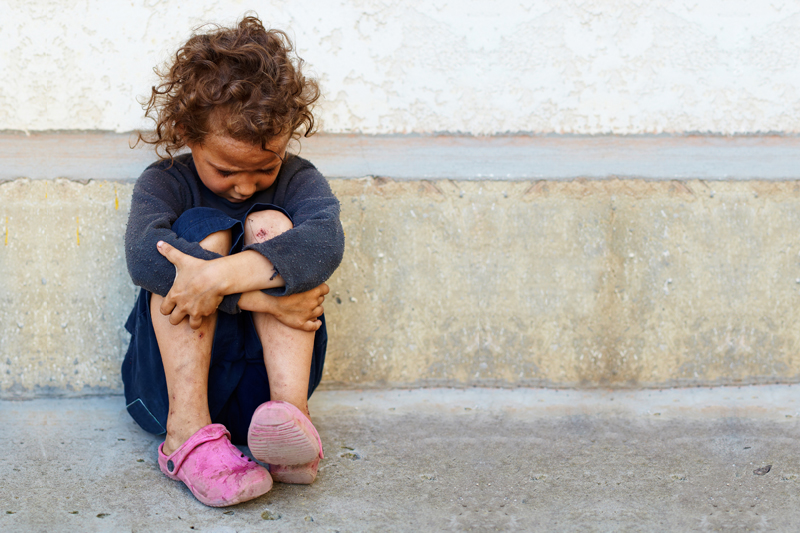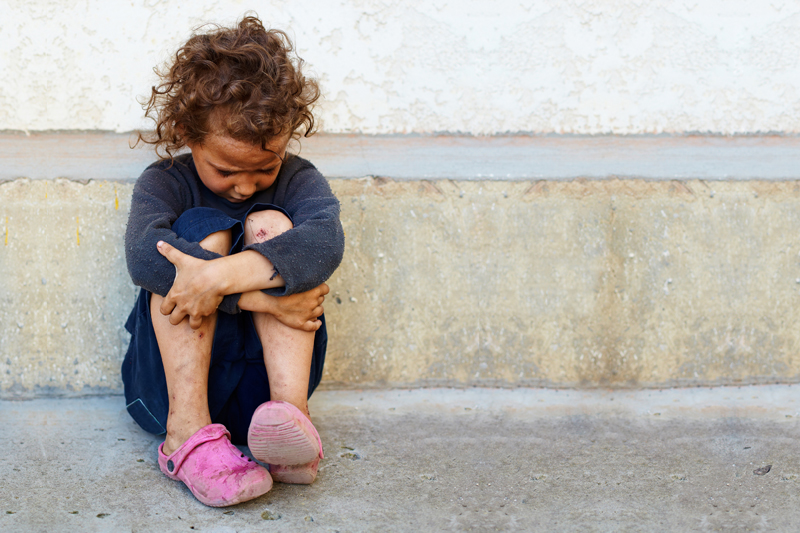Husband Abuses Children in Wife's Home Daycare

Ste. Genevieve is a small Missouri town, found on the Mississippi River, with a census in 2000 of 4,476 people. This is a town where everyone knows his or her neighbor, and even the people across town. In Ste. Genevieve, strangers stand out in the crowd. Here people are trusting of one another, therefore, when one of their own is arrested the town as a whole is shocked.
This is exactly what happened when William “Billy” E. Huck Sr., went to jail. Billy was facing accusations of molesting two children. The word spread through the town quickly. The allegations of child molestation where shocking, especially since Billy’s wife, Joyce, ran a home day care center.
The day care center run by Joyce Huck was unlicensed. She only watched five children at a time, and Missouri state law only requires a home day care to be state licensed when there are more than five children in the home. This number does not include the homeowner’s own children.
The investigation of child molestation charges began when a 4-year-old boy told his parents he had to perform oral sex on Mr. Huck. When the parents talked to the boy’s sister, she said Mr. Huck had touched her. The parents called police. The boy told police that Huck said he should not tell anyone what was happening.
On March 25, a Ste. Genevieve County Sheriff’s detective questioned William Huck. In a shocking and unexpected move, Huck waived his right to an attorney and confessed to twelve sexual meetings with the boy.
The story gets worse. Huck told police he may have abused in the upwards of forty children over the last thirty years. Police fear there are more victims, and many victims maybe too young to remember what happened.
Billy Huck tells police the abuse happened only when he was alone with the children. There are times his wife had a doctor’s appointment and she would leave her husband home with the children. Joyce Huck affirms to have had no knowledge of the abuse happening when she left.
This is a story all too familiar in today’s news and brings about a point that parents need to be diligent about in protecting their child or children. As parents, we must consider always consider who has direct contact with our children.
If our child is in a home day care, we must ask if ever our child is in the care of anyone other than the original provider we are hiring to watch our child. Is a spouse, significant other, or older male child ever involved in the care of our child? Who else lives at the home or often visits the home on a daily or weekly basis when our child might be present? Too many times this is when abuse happens.
If a parent receives a response of “that is none of your business” then the parent should look elsewhere. Other significant safety questions to ask a provider. Are there guns in the home? What pets do you have? Are there any large dogs? Is the yard fenced in or is there a swimming pool? These are the questions a parent is not afraid to ask normally yet when it comes to asking who has access or contact with my child parents think they do not have a right to ask.
Do you know who your child’s Scout leader is? Whom do you let into your home to work? How well do you screen the construction workers or repair technicians that come to your home? Do you let a child spend time alone with a sports coach? When your child wants to spend the day or night at his or her friend’s home, do you know the parents? Are their any extended relatives living there, like an aunt, uncle, or stepchild?
All too often, a sex offender will “hide” out with a family member and sometimes a family is not even aware they are hiding a sex offender. Talk to your children before something happens. It is never too early to teach a child that their body is off-limits to other people. Tell children the areas covered by their bathing suits are their private areas. Use the proper words for those areas. Do not make up words. If your child has to testify in court, using proper names gives them credibility. Tell them if someone does touch them in one of these areas, to tell mommy and daddy.
As children grow, the information we offer about sex abuse and sex offenders should expand with the age of the child. Children can handle more information as they mature. Older children need to know if someone is making them feel uncomfortable, even if no touching is involved, they should still tell to mom or dad, or a trusted adult.
In addition, offenders will say things to get children not to talk. Offenders will threaten the child, tell the child they will kill family members, pets or even the child themselves if the child does not keep the “secret.” Parents need to reassure children that their job is to protect the child. If the child tells them when someone is hurting them or threatening them then the parent can and will keep them safe. Yet, the child has to tell mom or dad, so mom and dad can help.
Parents listen carefully when your child tells you something or starts to tell you something and stops. Listen to the hidden clues of what a child may be telling you. Pay attention to the facts. Suddenly your child hates soccer and refuses to go after playing for 8 years. Previously your child loved soccer. Question what is happening. Question people who want to spend allot of time with your child, especially if that person is an older child or adult. Listen to what your heart and gut tell you. If in doubt, talk to your child.
This is exactly what happened when William “Billy” E. Huck Sr., went to jail. Billy was facing accusations of molesting two children. The word spread through the town quickly. The allegations of child molestation where shocking, especially since Billy’s wife, Joyce, ran a home day care center.
The day care center run by Joyce Huck was unlicensed. She only watched five children at a time, and Missouri state law only requires a home day care to be state licensed when there are more than five children in the home. This number does not include the homeowner’s own children.
The investigation of child molestation charges began when a 4-year-old boy told his parents he had to perform oral sex on Mr. Huck. When the parents talked to the boy’s sister, she said Mr. Huck had touched her. The parents called police. The boy told police that Huck said he should not tell anyone what was happening.
On March 25, a Ste. Genevieve County Sheriff’s detective questioned William Huck. In a shocking and unexpected move, Huck waived his right to an attorney and confessed to twelve sexual meetings with the boy.
The story gets worse. Huck told police he may have abused in the upwards of forty children over the last thirty years. Police fear there are more victims, and many victims maybe too young to remember what happened.
Billy Huck tells police the abuse happened only when he was alone with the children. There are times his wife had a doctor’s appointment and she would leave her husband home with the children. Joyce Huck affirms to have had no knowledge of the abuse happening when she left.
This is a story all too familiar in today’s news and brings about a point that parents need to be diligent about in protecting their child or children. As parents, we must consider always consider who has direct contact with our children.
If our child is in a home day care, we must ask if ever our child is in the care of anyone other than the original provider we are hiring to watch our child. Is a spouse, significant other, or older male child ever involved in the care of our child? Who else lives at the home or often visits the home on a daily or weekly basis when our child might be present? Too many times this is when abuse happens.
If a parent receives a response of “that is none of your business” then the parent should look elsewhere. Other significant safety questions to ask a provider. Are there guns in the home? What pets do you have? Are there any large dogs? Is the yard fenced in or is there a swimming pool? These are the questions a parent is not afraid to ask normally yet when it comes to asking who has access or contact with my child parents think they do not have a right to ask.
Do you know who your child’s Scout leader is? Whom do you let into your home to work? How well do you screen the construction workers or repair technicians that come to your home? Do you let a child spend time alone with a sports coach? When your child wants to spend the day or night at his or her friend’s home, do you know the parents? Are their any extended relatives living there, like an aunt, uncle, or stepchild?
All too often, a sex offender will “hide” out with a family member and sometimes a family is not even aware they are hiding a sex offender. Talk to your children before something happens. It is never too early to teach a child that their body is off-limits to other people. Tell children the areas covered by their bathing suits are their private areas. Use the proper words for those areas. Do not make up words. If your child has to testify in court, using proper names gives them credibility. Tell them if someone does touch them in one of these areas, to tell mommy and daddy.
As children grow, the information we offer about sex abuse and sex offenders should expand with the age of the child. Children can handle more information as they mature. Older children need to know if someone is making them feel uncomfortable, even if no touching is involved, they should still tell to mom or dad, or a trusted adult.
In addition, offenders will say things to get children not to talk. Offenders will threaten the child, tell the child they will kill family members, pets or even the child themselves if the child does not keep the “secret.” Parents need to reassure children that their job is to protect the child. If the child tells them when someone is hurting them or threatening them then the parent can and will keep them safe. Yet, the child has to tell mom or dad, so mom and dad can help.
Parents listen carefully when your child tells you something or starts to tell you something and stops. Listen to the hidden clues of what a child may be telling you. Pay attention to the facts. Suddenly your child hates soccer and refuses to go after playing for 8 years. Previously your child loved soccer. Question what is happening. Question people who want to spend allot of time with your child, especially if that person is an older child or adult. Listen to what your heart and gut tell you. If in doubt, talk to your child.

Related Articles
Editor's Picks Articles
Top Ten Articles
Previous Features
Site Map
Content copyright © 2023 by Erika Lyn Smith. All rights reserved.
This content was written by Erika Lyn Smith. If you wish to use this content in any manner, you need written permission. Contact Erika Lyn Smith for details.



